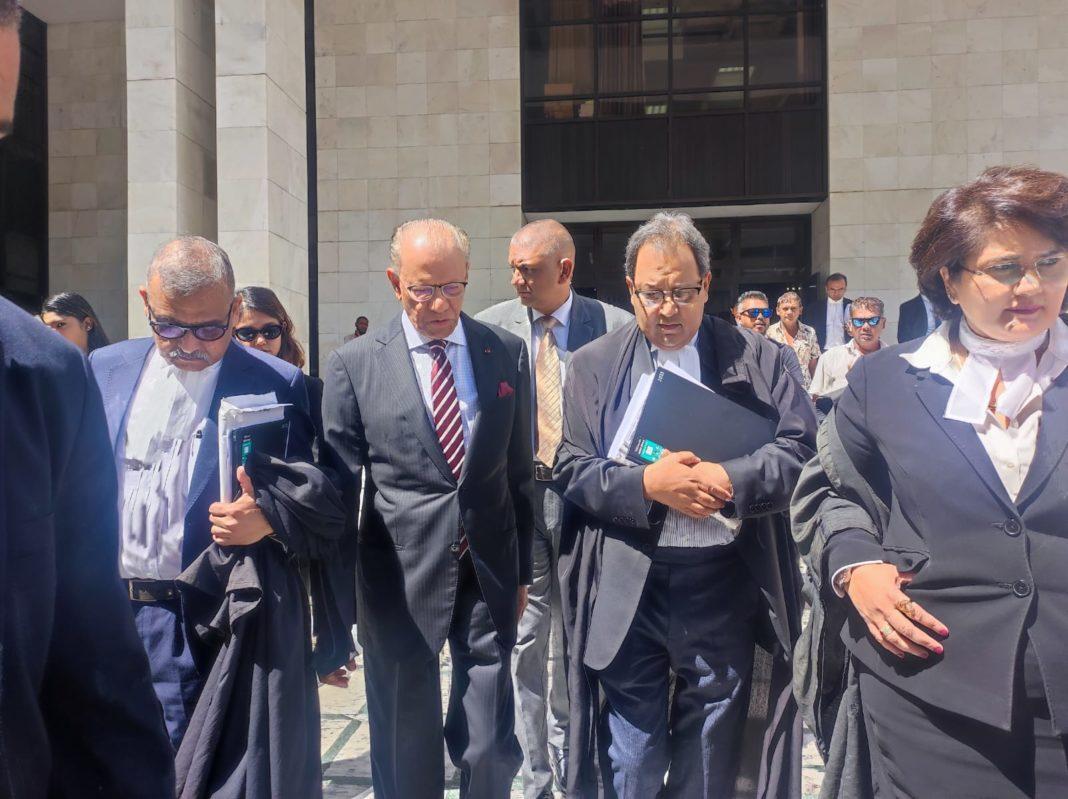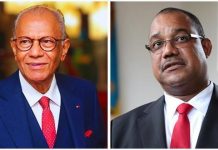Africa-Press – Mauritius. این متن به بررسی روند دادرسی جاری علیه نخستوزیر موریس، ناوین رامگولام، و جدال حقوقی میان دفاع و دادستانی بر سر افشای مدارک قضایی میپردازد. در ادامه نسخه بازنویسی شدهی انگلیسی در پنج پاراگراف آمده است.
Rewritten English Version (5 Paragraphs)
Prime Minister Navin Ramgoolam appeared once again before the Intermediate Court on Thursday, October 23, where the prosecution and defense engaged in sharp exchanges over document disclosure. The hearing took place before magistrates Bibi Razia Janoo-Jaunboccus and Abdool Rahim Tajoodeen, sitting in the Financial Crimes Division (FCD), under tight security, with officers from the VIP Security Unit stationed around the courtroom.
The Prime Minister faces 23 counts of violating the Financial Intelligence and Anti-Money Laundering Act (FIAMLA), related to allegations of exceeding the legal limit for cash payments after Rs 224 million were discovered in safes at his residences in Port Louis and River Walk. He has pleaded not guilty and maintains that the charges are politically motivated. His lead counsel, Senior Counsel Robin Ramburn, is requesting full disclosure of prosecution documents, arguing that these would demonstrate a “political vendetta orchestrated by the former government with police complicity.”
The defense contends that key police officers, including ACP Hemant Jangi, acted under instructions from the previous Prime Minister, citing a past statement reportedly saying, “If I don’t put Ramgoolam in prison, I’ll change my name.” Ramburn also pressed for documents to determine whether businessman Rakesh Gooljaury, previously judged unreliable in another case, served as the police’s informant. He insisted that this information is crucial to test the legality of the search warrant executed at Ramgoolam’s home and whether the subsequent seizure was lawfully grounded.
Representing the Director of Public Prosecutions, attorney Nataraj Muneesamy countered that the prosecution’s duty of disclosure applies only to items “relevant and material to the case,” not every document in its possession. He cautioned that the defense’s motions amounted to a “fishing expedition,” seeking information irrelevant to the central question—whether the accused accepted cash payments exceeding Rs 500,000. Muneesamy maintained that some requested documents are privileged, such as the identity of informants, while others are not held by the DPP’s office. He added that disclosure requests must be made “in a timely manner,” noting that the case was first lodged in 2017.
In reply, Ramburn emphasized that his client is entitled to a fair trial under Section 10 of the Constitution, which guarantees “full and not partial disclosure.” He insisted that the prosecution’s file “is not its private property to secure a conviction,” asserting that failure to disclose constitutes a material defect that could invalidate proceedings. He rejected the allegation of delay, reminding the court that the case had been discontinued by a previous bench before being reinstated by the Supreme Court. The defense maintained that fairness should prevail over confidentiality regarding informants and that the prosecution bears responsibility for obtaining any missing documents. The court is expected to deliver its ruling on the disclosure issue on November 27.
For More News And Analysis About Mauritius Follow Africa-Press







